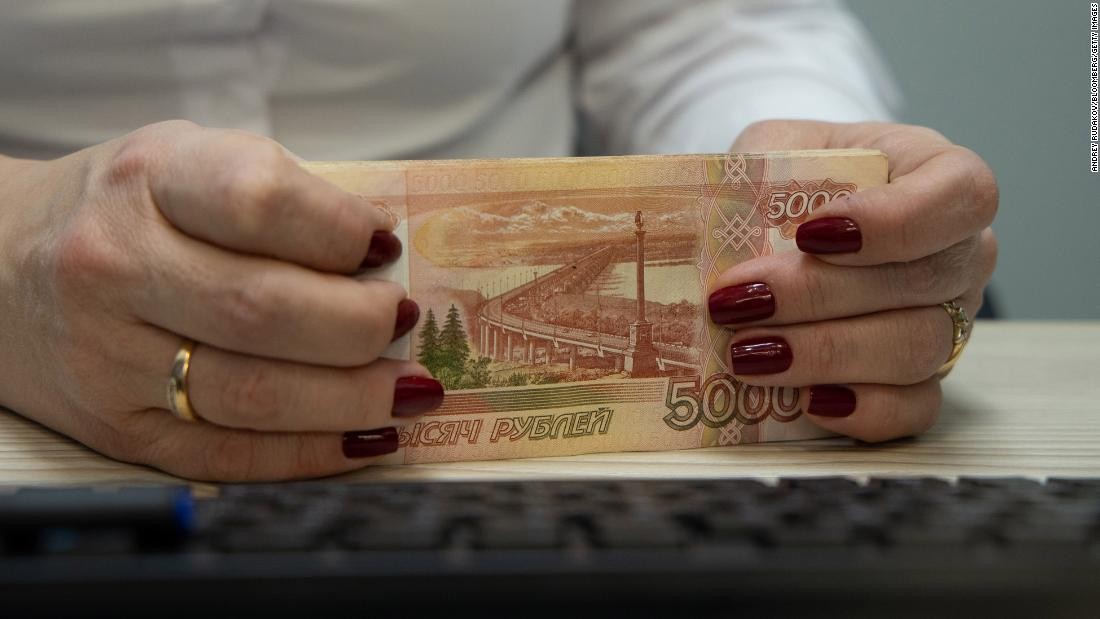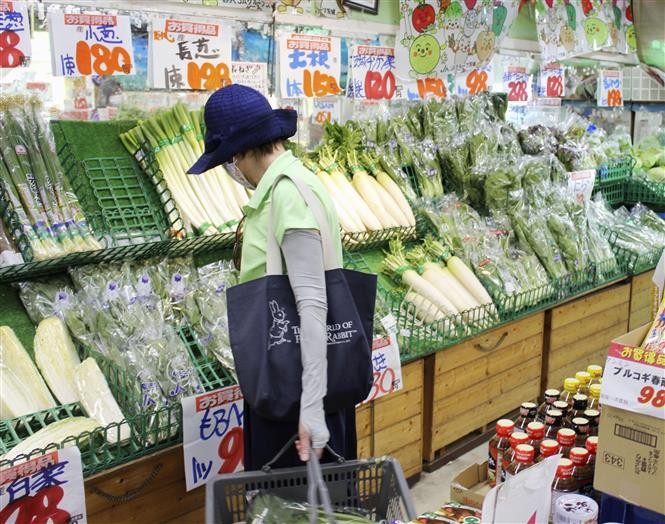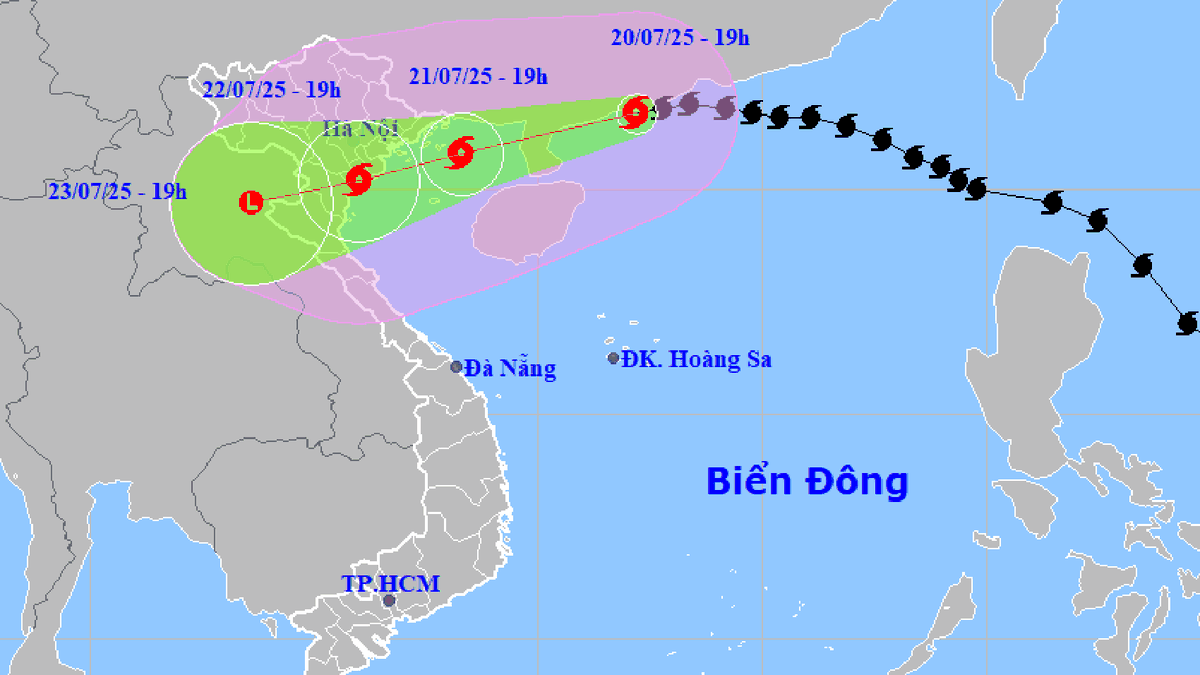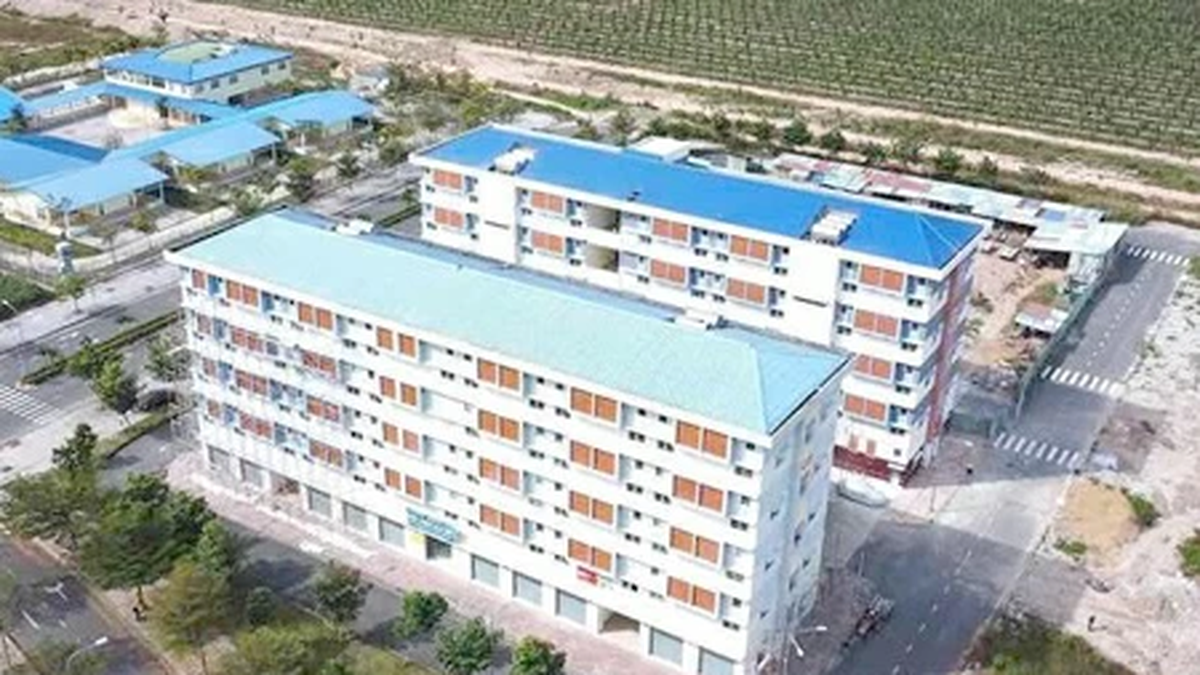 |
| The Russian Ministry of Finance has repeatedly affirmed that the Russian economy's budget deficit this year will not exceed 2% of GDP. (Source: CNN) |
World economy
OECD raises global economic growth forecast for 2023
The Organization for Economic Cooperation and Development (OECD) on June 7 slightly raised its 2023 growth forecast for the global economy as inflation eases and China lifts restrictions to control the pandemic, but warned that the recovery is a long way off.
The OECD forecasts global growth of 2.7% this year, up from 2.6% in March, as it upgrades forecasts for the US, China and the eurozone. However, the new forecast is still lower than the 3.3% growth forecast for 2022.
OECD chief economist Clare Lombardelli said the global economy is recovering but faces a long way to achieving strong and sustainable growth.
The 2024 growth forecast is kept unchanged at 2.9%.
Falling energy prices, supply chain bottlenecks being removed and China opening up earlier than expected are contributing to the global economic recovery.
However, core inflation, which excludes volatile energy and food prices, was higher than previously expected, which could force central banks to continue their efforts to raise interest rates to curb inflation.
The OECD raised its 2023 economic growth forecast for the US to 1.6%, China to 5.4% and the Eurozone to 0.9%, all by 0.1 percentage points. (AFP)
US economy
* The US trade deficit widened to an eight-year high in April 2023, as goods imports rebounded while energy exports fell.
The report released by the US Department of Commerce on June 7 said that the trade deficit in April 2023 increased by 23% to 74.6 billion USD, the highest percentage increase since March 2015 and the highest deficit in 6 months. The March 2023 data was revised down to 60.6 billion USD, instead of 64.2 billion USD as previously reported.
After adjusting for inflation, the US goods trade deficit in April 2023 increased 16.5% to 95.8 billion USD. (TTXVN)
Chinese Economy
* China's exports slowed much faster than expected in May, while imports extended their decline as the outlook for global demand dimmed, especially from developed countries. The data is raising concerns about the fragile economic recovery of the world's second-largest economy.
China's economy grew faster than expected in the first quarter of 2023, helped by a strong service sector and a backlog of orders after years of disruption due to the Covid-19 pandemic. But factory output slowed as rising interest rates and inflation weighed on demand in the United States and Europe . (Reuters)
* Saudi Arabia's Arab News newspaper reported on June 5 that the country and China are stepping up cooperation to ensure safe energy supplies for each country's market by planning to establish petrochemical joint ventures between the two sides.
Saudi Arabia's Energy Minister Abdulaziz Al-Saud met in Riyadh with Chairman of the National Energy Administration of China Zhang Jianhua to discuss plans to set up petrochemical joint ventures, aiming to convert crude oil into petrochemicals and develop applications of hydrocarbons, nuclear energy and fuels. The two countries are working to strengthen cooperation in the energy sector's supply chains. (VNA)
European Economy
* The European Commission (EC) said on June 5 that the European Union (EU) has extended import restrictions on Ukrainian grain products until September 15 at the request of five member states seeking to protect their agricultural sectors.
The European Commission (EC) announced that the EU will gradually remove the temporary and exceptional preventive measures against Ukrainian wheat, maize, rapeseed and sunflower seeds in Bulgaria, Hungary, Poland, Romania and Slovakia. The EU's move allows these five countries to ban the sale of these Ukrainian products domestically, but still allow their transit through these countries for export elsewhere, including to other EU countries. (THX)
* During the plenary session on June 7, the Federation Council (Upper House) of Russia approved an intergovernmental agreement with China on cooperation in supplying natural gas from Russia to China via the Far East pipeline.
The agreement was signed in Moscow and Beijing on January 31, 2023. The agreement creates an effective mechanism for implementing the terms of the contract for the sale and purchase of 10 billion cubic meters of natural gas via the Far East pipeline between PJSC Gazprom and China National Petroleum Corporation "on the principles of equality, mutual benefit and long-term cooperation". (VNA)
* On June 6, the Russian Finance Ministry said that the country achieved a marginal budget surplus in May, bringing the budget deficit in the first five months of the year down to 3,410 billion rubles (41.9 billion USD). In the first five months of this year, Russia's deficit was equal to 117% of the annual plan.
Russia’s Finance Ministry stopped publishing monthly budget spending data last year, but based on figures released on June 6, the budget surplus in May was 13 billion rubles ($16 million). Spending in May was the lowest this year, 1.1 trillion rubles ($140 million) lower than the previous month, the ministry said.
However, to achieve this year's budget spending target of 29.1 trillion rubles ($36 billion), Russia needs to continue to cut even more sharply.
In the first five months of this year, revenue from Russia's non-oil and gas sectors increased by more than 9.1% year-on-year, but revenue from the key oil and gas sector was 49.6% lower, leading to an 18.5% decrease in budget revenues and a 26.5% increase in government spending year-on-year.
However, Russian Finance Minister Anton Siluanov has repeatedly affirmed that this year's budget deficit will not exceed 2% of Gross Domestic Product (GDP). (Reuters)
* Germany's exports in April 2023 increased by 1.2% compared to the previous month, the German Federal Statistical Office (Destatis) said, while a poll by the British news agency Reuters predicted a decrease of 2.5%.
According to Destatis, German goods exports to China increased by 10.1%, while exports to the US increased by 4.7% and exports to the European Union (EU) increased by 4.5%. (Reuters)
* UK house prices recorded their first annual fall in more than a decade in May 2023 as higher mortgage rates deterred potential buyers, according to lender Halifax. Property prices fell 1% last month compared with May 2022, the first annual decline since December 2012.
Earlier this month, the Bank of England (BoE) revealed that the average interest rate on new mortgages rose to 4.5% in April 2023, the highest level since 2008. The market expects the BoE to raise interest rates again at its next monetary policy meeting on June 22 from 4.5% to 4.75% and possibly above 5% by the end of this year. (TTXVN)
Japanese and Korean Economy
* The Japanese Ministry of Internal Affairs, Communications and Information announced on June 6 that the spending of households with two or more members in Japan in April 2023 was only 203,076 Yen (about 1,455 USD), down 4.4% compared to the same period last year and the second consecutive month of decline.
Overall consumer spending in April 2023 recorded the sharpest decline since February 2021 (down 6.5%). Among the 10 major consumer goods categories, six items recorded declines. (TTXVN)
* The Japanese Yen traded above 140 Yen/USD in the session on June 5, after breaking this level for the first time since November 2022 late last month.
Last year, Japan’s Ministry of Finance pumped nearly $68 billion into the yen on September 22, October 21 and October 24, when the currency fell to 150 yen per dollar, its lowest level since 1990.
The Japanese currency's renewed weakness has prompted some market watchers to predict a major intervention by the Bank of Japan (BoJ), as it maintains its ultra-loose policy in a world of high interest rates and inflation. (CNBC)
 |
| Overall consumer spending in Japan in April 2023 recorded the sharpest decline since February 2021 (down 6.5%). (Source: Kyodo) |
* According to data released by the National Statistics Office of Korea (KS) on June 5, the consumer price index of instant noodles in the "Land of Kimchi" in May 2023 reached 124.04 points , up 13.1% over the same period in 2022. This is also the highest increase since the 14.3% increase in 2009 (during the global financial crisis).
Specifically, instant noodle prices in Korea increased by 3.5% in September 2022, then increased by 11.7% a month later, and by May 2023, recorded an increase of over 10% for 8 consecutive months. One of the reasons given by analysts is that Korean instant noodle manufacturers have simultaneously increased product prices due to the burden of input material prices. (TTXVN)
ASEAN Economy and Emerging Economies
* The Association of Southeast Asian Nations (ASEAN) and Japan have agreed on a series of economic cooperation measures to mark the 50th anniversary of the establishment of their bilateral dialogue partnership.
During a forum held in Tokyo on June 5, the Japan External Trade Organization (JETRO) and other agencies signed a memorandum of understanding (MoU) to support the launch of new startup projects.
Another agreement calls for Japanese government-affiliated commercial insurance organizations and MUFG Bank to provide investments and loans for ASEAN member countries' decarbonization efforts. (VNA)
* On June 5, ASEAN Secretary General Kao Kim Hourn said that the Association is working towards expanding the number of members of the Regional Comprehensive Economic Partnership (RCEP).
This means that RCEP, which accounts for 32% of the world's GDP, can grow even stronger. In addition, ASEAN also plans to set up a unit to support this trade agreement. (VNA)
* Sembcorp Gas Pte Ltd, a subsidiary of Singapore-based energy company Sembcorp Industries, has signed an agreement to import natural gas from Medco E&P Natuna Ltd, a unit of Indonesian oil and gas company PT Medco Energi Internasional Tbk.
Sembcorp said the deal to import natural gas from Indonesia’s West Natuna gas fields is worth an estimated $1.41 billion (S$1.9 billion). The company expects the four-year deal to take effect in the second half of 2023, subject to the necessary shipping arrangements.
The agreement supplements existing natural gas supplies from pipeline and liquefied sources, allowing Sembcorp to “maintain its position as Singapore’s leading natural gas importer.” (VNA)
Source




























![[Photo] National Assembly Chairman Tran Thanh Man visits Vietnamese Heroic Mother Ta Thi Tran](https://vphoto.vietnam.vn/thumb/1200x675/vietnam/resource/IMAGE/2025/7/20/765c0bd057dd44ad83ab89fe0255b783)



































































Comment (0)